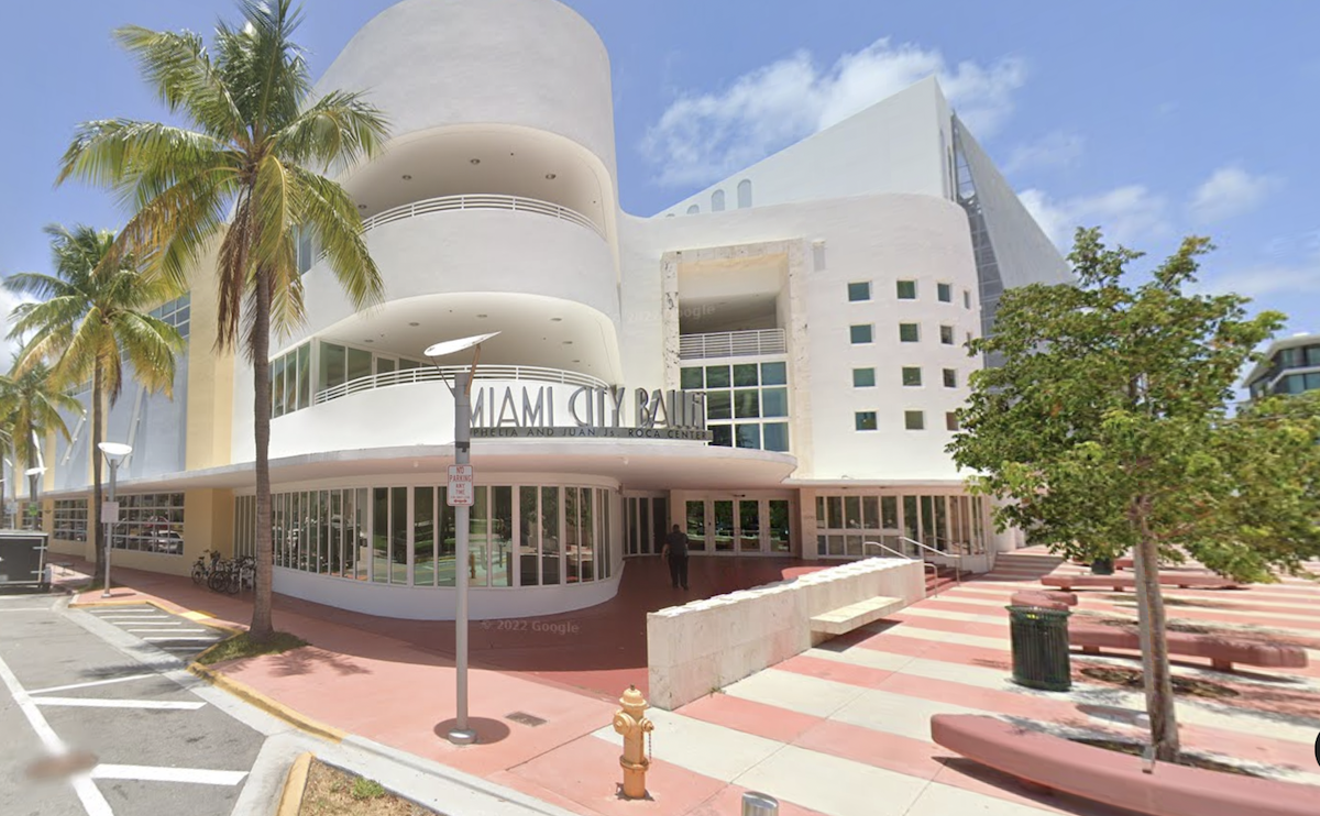They call it the Miami International Film Festival, and not just because it goes down in Miami. The fest's films are all designed to appeal to a Magic City audience, whether they're filmed locally, produced by or starring local talent, or addressing themes that are of particular interest to the three-oh-five.
As the 2012 edition approaches its conclusion on Sunday, we're taking a look at a handful of films that should resonate especially well in our hood. In closing-night selection Chinese Take-Away, we see a touchingly funny portrayal of clashing cultures that we know only too well. Underground Hip-Hop in China takes us into a nascent musical revolution on the other side of the globe, reminding rap fans of life before Pitbull. Set in St. Augustine, Born and Raised offers a close-to-home respite from Miami's urban mayhem. And what better parable for our city's glitzy fame-seekers than Hombre y Tierra, in which an Internet star is hunted in a remote jungle?
Films will screen daily through March 11. Tickets cost $12 for screenings and $14 for gala showings. For more film fest coverage, visit cultistmiami.com or miamifilmfestival.com.
Chinese Take-Away
With Hollywood endlessly recycling old ideas, it's easy to believe there's nothing new under the sun in the film world. At first, Chinese Take-Away seems to confirm that suspicion. It's the story of Roberto (Ricardo Darín), an ornery misanthrope with a tragic past. (Stereotype? Check.) Of course there's a woman, Mari (Muriel Santa Ana), who sees through his abrasive exterior to his true self. (Check.) But Roberto won't let Mari into his life. (Check.)
The arrival of Jun (Ignacio Huang), a Chinese man who speaks no Spanish, changes everything. What begins as a ride to Jun's uncle's home out of civic duty turns into a week-long residency, as Roberto begrudgingly lets Jun crash at his place, puts him to work at home and in his hardware store, and hesitantly brings him to social engagements that Roberto would rather not attend in the first place. Between Darín's weary frustration and Huang's pitch-perfect facial expressions, the plot's peppered with darkly comic moments.
Odd-couple stories like these traditionally end with an expected, heartwarming revelation on the part of the curmudgeon, and this film is no exception. But what's truly exceptional about Chinese Take-Away is the way director Sebastián Borensztein arranges all these cliches into a story that's genuinely touching — and one that, with its themes of cultural conflict and language barriers, should resonate deeply with Miami audiences. As the film ends, you know exactly what's coming — and you can't wait to see it take place. Ciara LaVelle
7 p.m. Saturday, March 10, at the Olympia Theater (174 E. Flagler St., Miami; 305-374-2444; gusmancenter.org). Tickets cost $25.
Underground Hip-Hop in China
The story of hip-hop is the same all over the world, though the details may differ. It begins as the music of the oppressed and disenfranchised, with aggressive rhythms and politicized lyrics that cleverly cut down the powers that be. Governments, corporations, and other iterations of "The Man" respond by shutting hip-hop down, which pushes it underground and unintentionally amplifies its effect. So instead, they try a new tactic: censorship, serving a castrated version of the pure stuff to the masses.
Through interviews with rappers, producers, and scholars, director Jimmy Wang tells the Chinese version of this tale. U.S. hip-hop fans will recognize the trajectory of the genre in the East far too well, as some rappers drop political commentary in favor of rhymes about blowjobs, money, and weed. There's even a singer nicknamed "the Chinese Justin Bieber."
But audiences will also recognize that in comparison to hip-hop in the U.S., Chinese rappers face far more intense pressure. Yin Tsang, the hip-hop group that ignited the sound in China, struggles to make its music financially successful without selling out, just like U.S. groups. But Yin Tsang's not just battling record labels; China's strictly controlling government makes lyrical political dissent illegal to distribute.
Wang's documentary takes us inside the world of underground hip-hop in China, through rappers' testimonials and scenes from performances, backstage parties, and recording sessions. At times, it feels like there's no way the progressive medium can survive in such a constricted culture. But Yin Tsang rapper Weber, a central character in the film, can force even the most jaded music snob to root for a Chinese hip-hop revolution with his infectious passion. If you're not a fan of hip-hop going into the film, Chinese or otherwise, you will be on your way out. Ciara LaVelle
7 p.m., Sunday, March 11, at O Cinema (90 NW 29th St., Miami; 305-571-9970; o-cinema.org). Tickets cost $12.
Born and Raised
The small, seaside Florida Panhandle setting in Born and Raised is like a basket of live crabs; whenever one gets close to spilling out over the rim, the others frantically pinch and pull him back inside to go on writhing around with the rest. Bubbs (Nick Loritsch) is a young dock worker who quietly longs to escape — but his clingy mother (Sandra Staggs), a victim of a string of abandonments (starting with her deadbeat dad), flips her lid anytime he brings it up. She's also unhappy about the time her son spends on the docks with her estranged fly-by-night father (Jackson Pyle), to whom she hasn't spoken in 20 years. Lucky for his overbearing mom, Bubbs soon shacks up with his best friend's sister, Corey (Miami native Dawntavia Bullard), and he seems willing to put his dreams of exploration on permanent hold. Or maybe not.
The film's characters are all clichés. There's the womanizing, windblown, badass grandpa; the resentful, fearful mother trapped in her hurtful past; and the town drunk, chiming in with his two cents from his pool of drool on the bar. The beautiful damsel in distress, the meathead abusive boyfriend, the opportunistic harlot — they're all here. And the young, able-bodied characters' violent resistance to the idea of leaving their hometown is largely unexplained and hard to believe. An extended monologue from Bubbs's best friend Kenny (Keith Hudson) states that living circumscribed lives in St. Augustine is their destiny, and that they should never leave. This crippling agoraphobia would be appropriate in a science fiction film set in an alternate, Twilight Zone-esque reality, but as a stab at realism in a world made small by globalization, it's ridiculous. It's no help that the development of the relationship between Bubbs and Corey is flimsy, making their connection — which is essential to the story line — difficult to grasp.
Still, by low-budget indie standards, the film is sweet, even if it's also predictable and prosaic. Even as the action unfolds to its finish, we couldn't help smiling at a few cute final touches, even if the ends are sewn up a bit hastily. Camille Lamb
7 p.m. Saturday, March 10, at O Cinema. Tickets cost $12.
Hombre y Tierra
Mauro Bosque (Mauricio Ripke) is a man on two missions. He's traveled to Belize to film an episode of Hombre y Tierra, his own web series in which he ventures into the wilderness, Bear Grylls-style, to show off his survival skills. But this destination has particular meaning for Bosque; along the way, he hopes to explore the Mayan cave sites that his grandmother used to tell him about when he was a child. When he discovers that those caves aren't on the route planned for him by his corporate sponsors, he instigates an arrogant confrontation with his producer and takes it upon himself to veer off course.
Director Christian Cisneros's film is in MIFF's "Mayhem" category, so it's no surprise that things don't end well for poor Mauro. Something is following him through the forest, making strange noises and stealing his gear. Bosque's shaky, hand-held camerawork amplifies the suspense in a way reminiscent of The Blair Witch Project (minus the threat of motion sickness, thankfully).
But the film undermines that suspense with inconsistencies and a vague plot. In some scenes, Bosque films himself explaining how to use a compass and light a fire — but wouldn't earlier webisodes have covered these basics? We know next to nothing about the creature — Ghost? Monster? Chupacabra? Jungle cat? — that keeps roaring at him and rustling around outside his tent. And though he refers to his grandmother's stories about the Mayan caves, he never actually tells us the stories. Were they cursed? Filled with treasure? Both? Do they have anything to do with whatever's stalking him? Not a clue.
The goal of any scary story is to make its audience's imaginations run wild with fear. But at the end of Hombre y Tierra, the only thing we feared was a sequel. Ciara LaVelle
9:30 p.m., Friday, March 9, at Regal Cinemas South Beach (1120 Lincoln Rd., Miami Beach; 305-674-6766; regmovies.com). Tickets cost $12.
For more films, times, tickets, and other information, visit cultist miami.com or miamifilmfestival.com.











